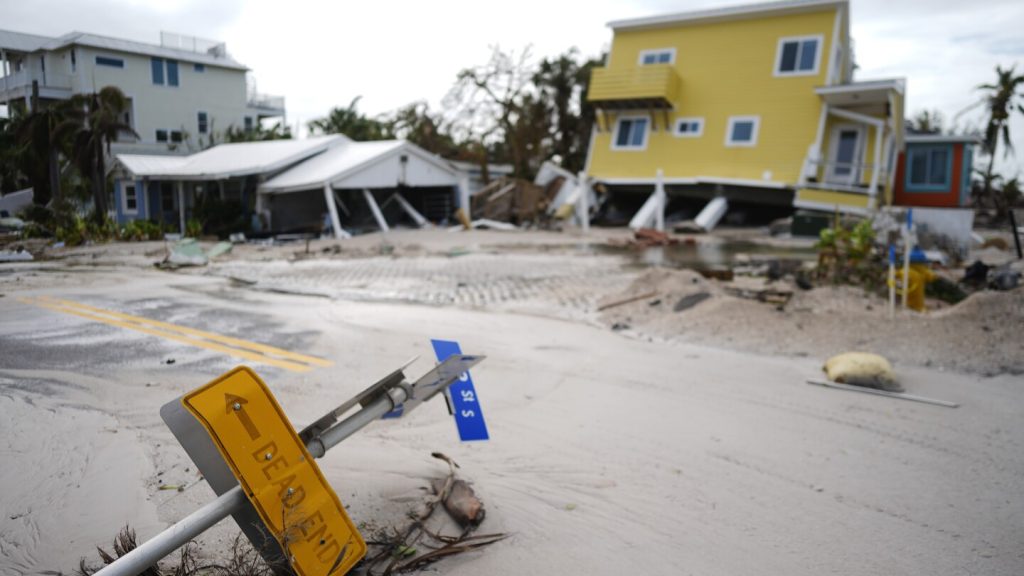Federal Agency Seeks Disciplinary Action Against Former FEMA Worker for Alleged Hatch Act Violation
A federal agency has initiated disciplinary proceedings against a former Federal Emergency Management Agency (FEMA) employee accused of violating the Hatch Act. The former employee, Marn’i Washington, allegedly directed disaster relief workers to avoid homes displaying yard signs supporting President Donald Trump while assisting hurricane survivors in Florida. This case highlights the ongoing challenges of maintaining political neutrality in government work, as well as the complexities of addressing such issues within the federal legal framework.
Allegations and the Complaint Filed Against Marn’i Washington
According to a complaint filed by the U.S. Office of Special Counsel (OSC) with the U.S. Merit Systems Protection Board, Marn’i Washington violated the Hatch Act by engaging in partisan political activities while on duty. The OSC alleged that during her deployment to Florida in October, after Hurricane Milton, Washington instructed her team to avoid homes with Trump yard signs. This directive was reportedly aimed at steering clear of properties where her team had encountered hostility. However, the OSC contends that such actions constituted a clear misuse of official authority to influence or interfere with the outcome of the election, thereby violating the Hatch Act.
The Hatch Act prohibits federal employees from engaging in partisan political activities while on duty or using their official positions to influence election outcomes. The Act’s purpose is to ensure that government operations remain impartial and free from political bias.
The Office of Special Counsel’s Role and the Legal Proceedings
The Office of Special Counsel, led by Hampton Dellinger, has been at the center of this case. Dellinger, who was confirmed by the Senate to lead the OSC last year, emphasized the seriousness of the allegations, stating, “A federal employee clearly violates the Hatch Act by engaging in explicit partisan political bias or activity when on the job.” The OSC is seeking disciplinary action against Washington, which could include a civil penalty or a temporary ban on federal employment.
However, the case has been further complicated by the political turmoil surrounding the OSC itself. Dellinger was abruptly fired by President Trump on Friday as part of a broader overhaul of federal agencies. Dellinger swiftly challenged the termination in court, arguing that his removal was illegal. On Monday, a federal judge in Washington sided with Dellinger, ordering his reinstatement as special counsel at least until midnight on Thursday. The Trump administration has since appealed the decision, asserting that the president has the authority to terminate Dellinger.
Marn’i Washington’s Defense and the Controversy Surrounding the Case
Marn’i Washington, who was fired from FEMA in November, has denied any wrongdoing. In an interview with NewsNation, she claimed she was being “framed” and maintained, “There’s no violation of the Hatch Act. I was simply following orders.” Washington also stated that the directive to avoid certain homes was a response to hostile encounters her team had experienced at properties displaying Trump signs. However, the OSC has dismissed her claims, asserting that her actions crossed legal and ethical boundaries.
The case has sparked significant debate, with some questioning whether the Hatch Act is being applied fairly in this context. Critics argue that federal employees should not face penalties for actions taken in response to perceived threats or hostile environments. On the other hand, proponents of the Hatch Act emphasize the importance of maintaining the neutrality of government operations and the need to prevent any form of political bias in the delivery of public services.
Potential Penalties and Implications for Federal Employees
If found guilty of violating the Hatch Act, Marn’i Washington could face serious consequences, including a civil penalty or a temporary ban from federal employment. While these penalties are typically not as severe as criminal charges, they can still have a lasting impact on a federal employee’s career and reputation.
This case serves as a reminder of the challenges federal employees face in navigating the complexities of the Hatch Act. The law is designed to prevent government workers from using their official positions to advance partisan political agendas. However, the line between permissible political expression and prohibited activities can sometimes be difficult to discern, particularly in polarized political environments.
The Broader Implications of the Case for Government Accountability
The legal battle over Marn’i Washington’s actions and the simultaneous controversy surrounding Hampton Dellinger’s firing highlight critical issues regarding government accountability and the independence of federal agencies. The Hatch Act is a cornerstone of efforts to ensure that federal employees remain impartial in their official duties. At the same time, the ability of political appointees to influence the leadership of agencies like the OSC raises important questions about the balance of power in the federal government.
As the case proceeds, it will be closely watched by legal experts, government watchdogs, and the public. The outcome could have significant implications for how federal agencies address political neutrality in the workplace and how they hold employees accountable for violations of the Hatch Act. Additionally, the ongoing legal battle over Dellinger’s reinstatement could set a precedent for how federal courts handle disputes over the termination of high-ranking government officials.
In conclusion, the allegations against Marn’i Washington and the subsequent legal proceedings underscore the challenges of upholding political neutrality in government work. The case also highlights the broader tensions between political oversight and the independence of federal agencies. As the situation continues to unfold, it will be important to ensure that the principles of fairness, accountability, and impartiality are upheld at all levels of government.












